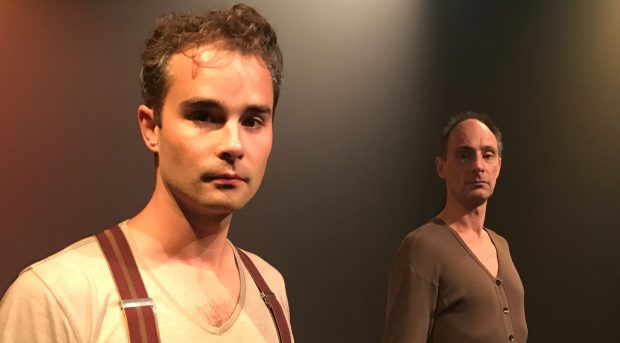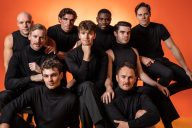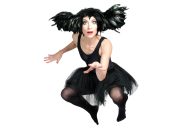Undoubtedly the forgotten heroes of WWI were the 136,000 military horses sent to the battlefields along with the thousands of ANZAC soldiers. As man perished, so too did his horse, and only one returned to Australia. His name was Sandy and his story has come to light, as told by the boys who fed him apples.
Written by Rosemary Johns, inspiration for the play came after attending a production of War Horse, where she discovered Sandy’s story within the program.
“In writing this play, I wanted the audience to walk away knowing Sandy’s story and the story of the forgotten men who served with him,” says Rosemary.
“In my research I spoke to The Friends of Sandy society and the Australian Light Horse where some members had parents who fought in the war. Their memories were so vivid that I felt that the story was a breath away. This play is an alternate view of the war, because as it recedes we forget the reality of it. I wanted audiences to experience the humanity and compassion in a symbiotic bond of horse and man – even in the brutality of war.”
The two-man play takes us through three sequences, the first being Sandy and owner Major-General Sir William Throsby Bridges at Gallipoli. The next includes a veterinarian officer on the Western Front, then finally we see the return home with groom Archibald Thomas Jordan, where Sandy’s life draws to an emotional conclusion.
Taking on the multiple roles of military men is Andre Jewson (The Lion King), who not only morphs convincingly from one character to the next, but also conveys a loving bond with the docile Sandy.
“I enjoyed the rigour required to get the often complicated language and imagery under my skin,” says Andre. “So much of our rehearsal was about playing with rhythm and finding what needed to have pace behind it. Our director Greg Carroll, was very interested in strengthening the relationships between my characters and the horse, so we worked that in in a few different ways. The connection between man and horse is very clear in the writing, so in a way it was just about honouring that, while also allowing ourselves to play together as actors and letting the complicity between us blossom.”
Sandy himself, is played by European mime artist Miklos Gerely, who combines all the gentility, fear and strength that encapsulates the spirit of a warhorse.
“I watched horses to find out how I could show their most important physical qualities,” says Gerely.
“I soon realised I had a deficiency in my legs but a surplus in my arms, so I decided to play only the front part of the horse, hiding my arms altogether. Horses express emotion using their front legs and by turning their head, so I used that. But another important aspect is their eyes, which are big and mirror-like. I don’t think they express emotions through their eyes, but I do think they are mirroring human emotions as a reflection, so I used my eyes and facial expressions to mirror and amplify André’s feelings.”
There is also a certain amount of pathos written into the story, particularly through the anthropomorphic traits of Sandy who at times takes on human characteristics. In one clever moment Sandy and his groom fantasise about going to the movies – a scene that draws all the flickering black and white sentiment of an old cinema. Special note should be given to lighting designer Shane Grant.
Also breathing life into the play are Michael Havir (sound design), Peter Mumford (production design) and Kylie Russell (production manager).
Having played to full houses at Melbourne’s LaMama Theatre, As Told By The Boys Who Fed Me Apples is expected to tour in the next twelve months. Heartwarming, and at times heart wrenching, this theatrical experience brings to life a cathartic narrative of the Gallipoli experience. It is a story about the unique bond between man and beast, and ultimately one steeped in loyalty.
Over the years many Australian icons have flown under the radar, but thanks to the creative voice of this play, Sandy the warhorse gets his day in the sun.





